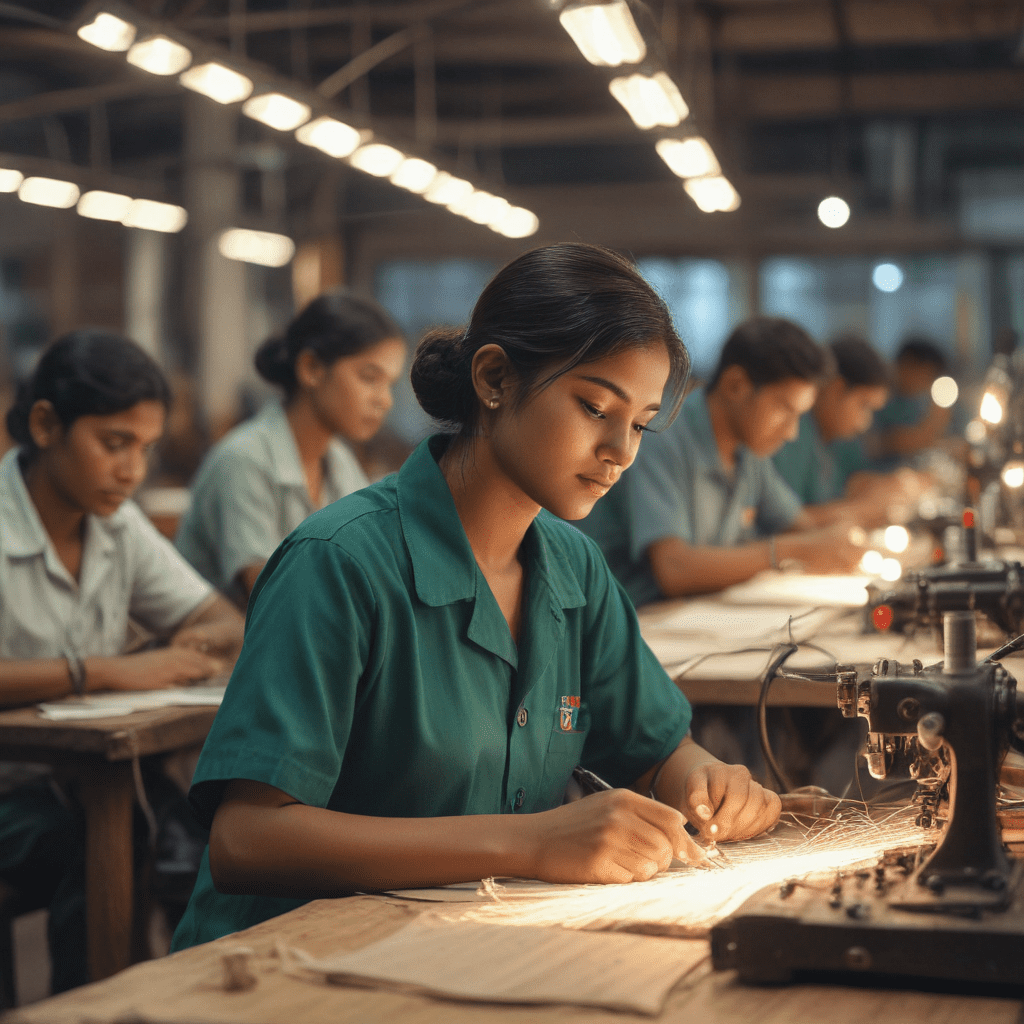
Bangladesh's Economic Progress
Bangladesh has made remarkable economic progress in recent decades, transforming from a low-income country to a lower-middle-income country. This growth has been driven by various factors, including a favorable business climate, political stability, and increased investment in infrastructure and human capital.
The Importance of Vocational Training
Vocational training plays a crucial role in Bangladesh's sustained economic progress. It equips individuals with the skills and knowledge necessary to meet the demands of a growing and evolving labor market. By providing job-specific training, vocational institutions help bridge the gap between the skills possessed by the workforce and the requirements of industries.
Vocational Training in Bangladesh
Bangladesh has a robust vocational training system that includes both public and private institutions. These institutions offer a wide range of programs, from short-term courses to diploma and degree programs, covering various sectors such as manufacturing, construction, agriculture, and information technology.
The Current State of Vocational Training
The current state of vocational training in Bangladesh is characterized by both strengths and challenges. On the positive side, there has been a significant increase in the number of training institutions and programs offered. Additionally, the government has prioritized vocational training, recognizing its importance for economic development.
Challenges Faced by Vocational Training
Despite the progress made, vocational training in Bangladesh faces several challenges. These include:
- Limited funding and resources
- Lack of modern equipment and facilities
- Misconceptions and negative attitudes towards vocational education
- Limited coordination between training institutions and industries
6. Government Initiatives for Vocational Training
Recognizing the importance of vocational training, the Bangladesh government has implemented various initiatives to strengthen the sector. These initiatives include:
- Establishing the Directorate of Technical Education (DTE) to oversee and regulate vocational training institutions.
- Launching the "Skills for Employment" program to provide skill training to unemployed youth.
- Introducing the "National Apprenticeship Program" to facilitate on-the-job training opportunities.
- Providing financial assistance to vocational training institutions and scholarships to students.
7. Success Stories of Vocational Training
Vocational training has played a significant role in transforming the lives of countless individuals in Bangladesh. Success stories abound, such as:
- A young woman who completed a vocational training program in garment manufacturing and secured a well-paying job in a leading textile factory.
- A farmer who received training in modern agricultural techniques and significantly increased his crop yield.
- A mechanic who underwent vocational training and established his own successful auto repair business.
8. The Future of Vocational Training
Vocational training is poised to play an even more critical role in Bangladesh's future economic development. The government has set ambitious targets to expand access to vocational training and improve the quality of programs offered. Additionally, there is a growing emphasis on aligning vocational training with the needs of emerging industries such as robotics and artificial intelligence.
9. International Collaboration in Vocational Training
Bangladesh is also collaborating with international organizations and development partners to enhance its vocational training system. Partnerships with countries such as Germany and Switzerland have provided access to best practices and expertise in vocational education.
10. Conclusion
Vocational training is an indispensable pillar of Bangladesh's economic progress. By providing individuals with the skills and knowledge required by the labor market, vocational institutions contribute to job creation, increased productivity, and overall economic growth. The government's commitment to vocational training and the success stories of individuals who have benefited from it demonstrate the transformative potential of this sector. Looking ahead, vocational training will continue to play a vital role in shaping Bangladesh's economic future and empowering its citizens to realize their full potential.
Frequently Asked Questions
What are the different types of vocational training programs available?
Vocational training programs cover a wide range of fields, including manufacturing, construction, agriculture, healthcare, and information technology. They can range from short-term courses to diploma and degree programs.
What are the benefits of vocational training?
Vocational training provides individuals with job-specific skills, increases their employability, and enhances their earning potential. It also contributes to economic growth by bridging the gap between the skills possessed by the workforce and the requirements of industries.
What are the challenges faced by vocational training in Bangladesh?
Challenges include limited funding, lack of modern equipment, misconceptions about vocational education, and limited coordination between training institutions and industries.


